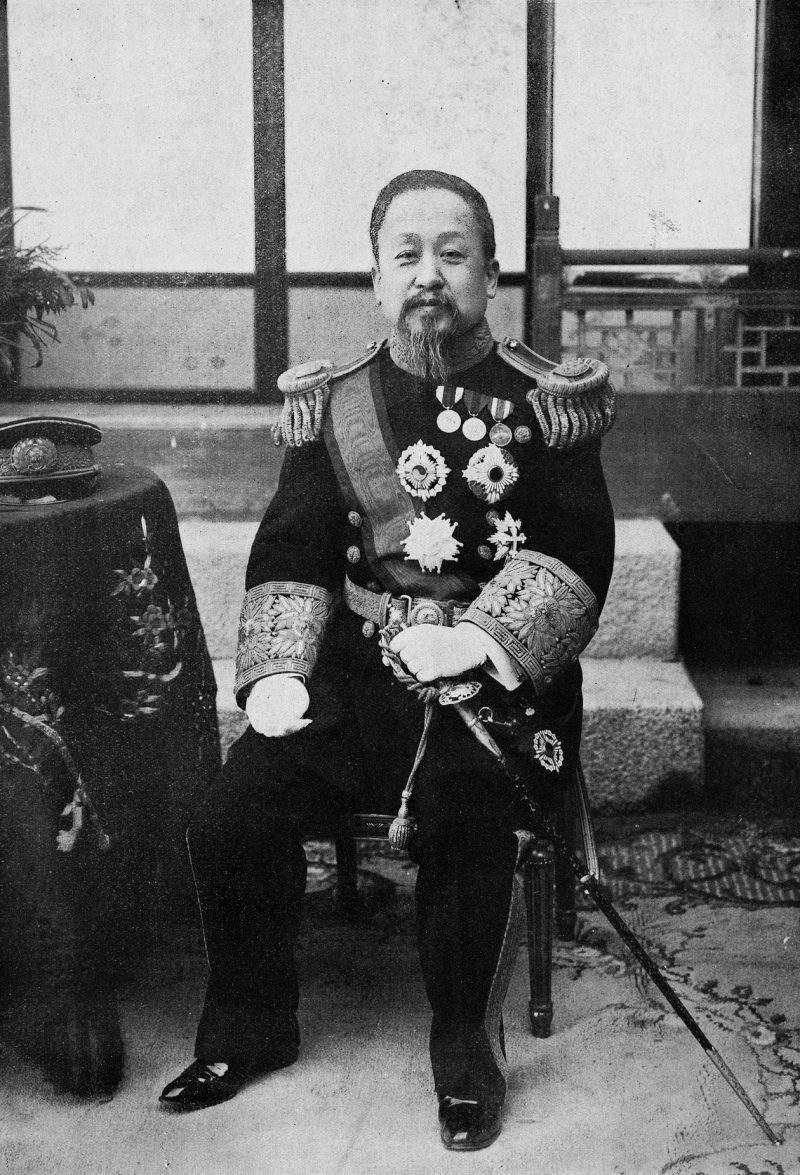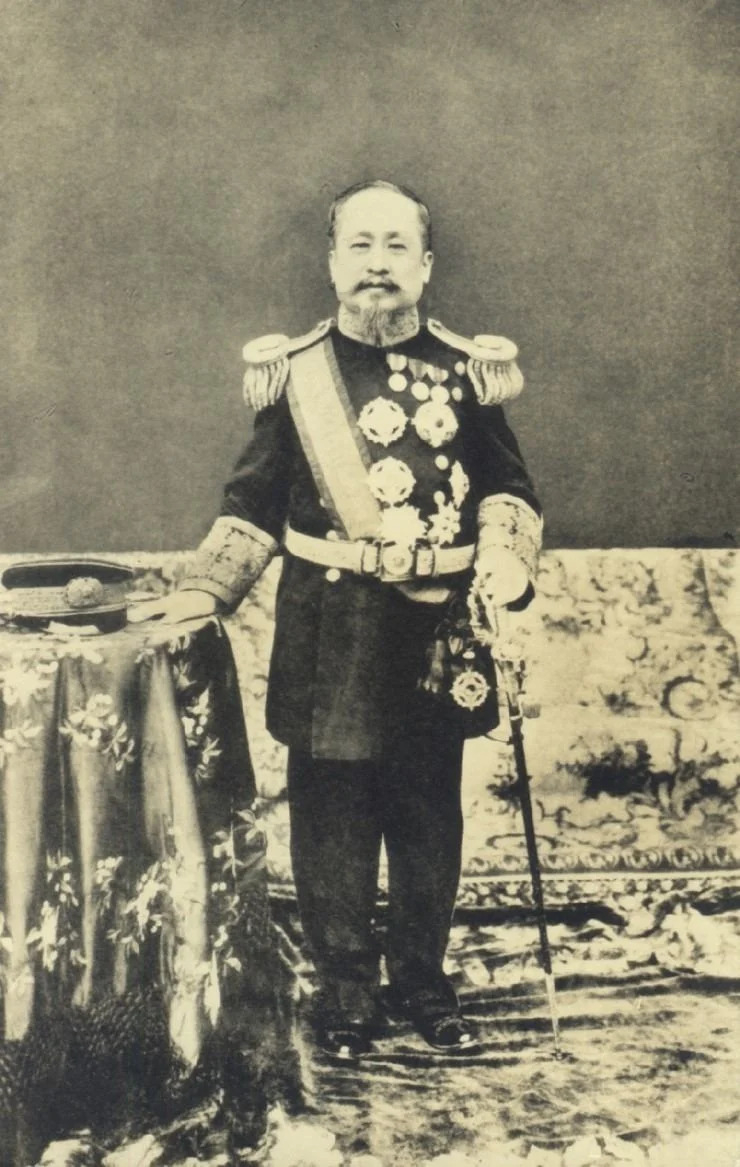Gojong of Korea
Gojong of Korea (July 25, 1852 - January 21, 1919), reigned as the twenty-sixth and final king of Korea's five-century Joseon Dynasty from 1863 to 1907. He reigned in the years preceding the monarchy's demise and Korea's entry into the modern world. Toward the end of his reign, he declared Korea an empire, making him the first emperor of the Korean Empire. The empire was dissolved with Japan's annexation of Korea in 1910, and it was never reestablished.
After taking over the country from his father Daewongun in 1873, Gojong, one of the most important historical figures in Korea allowed most of Daewongun's reforms to stand, most notably the dissolution of the sowons, private academies run throughout the country by yangbans that had become breeding grounds for political factions and enjoyed unbalanced tax-free status. During his reign, Daewongun restored Deoksugung palace, which had been the seat of royal power in Korea for centuries. Unlike Daewongun, King Gojong and Queen Min began to open the country's doors to foreign presence. For the most part, Gojong's intention in forging his alliance with Japan, symbolized by the Treaty of Ganghwa in 1876, was to liberate Korea from China's long-standing hegemony. He went one step further in 1882, establishing a foreign office and welcoming Prussian statesman Paul George Mollendorff as an official advisor to the crown.
At the urging of progressive elements, Gojong of Korea authorized the publication of the nation's first newspaper, the Hansung Sunbo, in 1883, and established a postal system modeled after those in Japan and China the following year. He declared Korea an Empire in 1897, elevating the country to the same level as Japan and China. Later, in 1898, on the advice of the Independence Club, he issued a proclamation establishing a senate and establishing the country as a constitutional monarchy. However, under pressure from current ranking officials who feared losing their influence, he was forced to back down, and the elections were postponed, and eventually canceled entirely. He continued to form alliances, almost all of which were detrimental to Korea, in order to keep the country from being sliced into pieces by the Japanese, Russians, Chinese, and other powers interested in the small peninsular nation and its advantageous location linking Russia and Asia. In the end, his efforts resulted in the country falling under Japanese control in the early twentieth century, where it remained until the end of World War II.
Birthdate: July 25, 1852
Birthplace: Unhyeongung, Seoul, South Korea
Died: January 21, 1919












